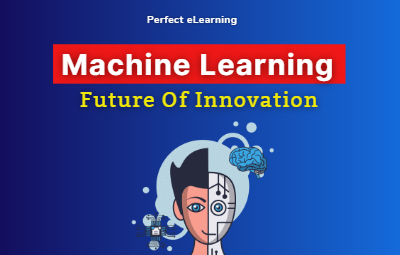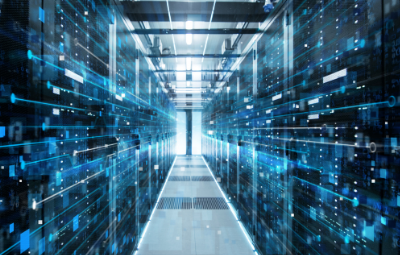

As technology continues to advance, Machine Learning has emerged as a groundbreaking innovation that has revolutionized various industries. From healthcare to finance, Machine Learning has become an indispensable tool for improving efficiency, productivity, and accuracy. In this article, we will explore the concept of Machine Learning, its potential applications, and how it is shaping the future of innovation.
The Future of Innovation
Technology has become an integral part of our lives, and it is constantly evolving to meet our needs. Machine Learning, a branch of Artificial Intelligence, has become a game-changer in many industries. It is transforming the way businesses operate, improving efficiency, and providing better customer experiences. Machine Learning is also driving innovation, and its potential applications are endless.
What is Machine Learning?
Machine Learning is a branch of Artificial Intelligence that involves teaching machines to learn from data, without being explicitly programmed. It involves the use of algorithms to identify patterns in data and make predictions based on those patterns. Machine Learning enables machines to learn from experience and improve their performance over time.
Types of Machine Learning
There are three main types of Machine Learning:
1.Supervised Learning: This involves training a machine learning model with labeled data, where the output is known. The model learns to make predictions based on the input data and the output labels.
2.Unsupervised Learning: This involves training a machine learning model with unlabeled data, where the output is unknown. The model learns to identify patterns in the data and group similar data points together.
3.Reinforcement Learning: This involves training a machine learning model to make decisions based on feedback from the environment. The model learns to take actions that maximize a reward or minimize a penalty.
How Machine Learning Works
Machine Learning works by using algorithms to analyze data and identify patterns. The machine learning model is trained on a dataset, which is divided into a training set and a test set. The training set is used to train the model, and the test set is used to evaluate the model's performance.
The machine learning model is then used to make predictions on new data, using the patterns it has learned from the training set. The model's performance can be improved by adjusting the parameters of the algorithm, or by adding more data to the training set.
Applications of Machine Learning
Machine Learning has countless applications across various industries. Some of the most common applications of Machine Learning include:
1. Predictive Maintenance
2. Fraud Detection
3. Sentiment Analysis
4. Image Recognition
5. Personalized Recommendations
Machine Learning in Healthcare
Machine Learning has the potential to revolutionize healthcare by improving diagnosis, treatment, and patient outcomes. Machine Learning algorithms can be used to analyze medical data, identify patterns, and make predictions. This can lead to more accurate diagnoses, personalized treatments, and better patient outcomes.
Machine Learning in Finance
Machine Learning is also transforming the finance industry by improving risk management, fraud detection, and customer experience. Machine Learning algorithms can be used to analyze financial data, identify patterns, and make predictions. This can lead to more accurate risk assessments, faster fraud detection, and personalized financial services.
Machine Learning in E-commerce
Machine Learning is becoming increasingly important in the e-commerce industry, where it is used to improve customer experience, optimize pricing, and personalize recommendations. Machine Learning algorithms can analyze customer data, purchase history, and behavior to provide personalized recommendations, optimize pricing, and improve customer engagement.
Machine Learning in Manufacturing
Machine Learning is transforming the manufacturing industry by improving efficiency, reducing waste, and optimizing supply chain management. Machine Learning algorithms can be used to analyze production data, identify patterns, and make predictions. This can lead to more efficient production processes, reduced downtime, and better inventory management.
The Future of Machine Learning
The future of Machine Learning looks promising, as it continues to evolve and shape various industries. It is expected to play a significant role in the development of self-driving cars, smart homes, and personalized healthcare. The potential applications of Machine Learning are endless, and it is expected to continue driving innovation in the years to come.
Advantages of Machine Learning
There are several advantages to using Machine Learning, including:
1. Improved efficiency and productivity
2. Better accuracy and performance
3. Personalized recommendations and services
4. Faster decision-making
5. Improved customer experience
Challenges of Machine Learning
While Machine Learning has many advantages, there are also some challenges associated with its use, including:
1.Lack of transparency in decision-making
2.Bias in data and algorithms
3.Lack of interpretability in complex models
4.Data privacy and security concerns
Ethical Considerations in Machine Learning
As Machine Learning continues to evolve, there are ethical considerations that need to be addressed. These include issues related to bias, transparency, accountability, and privacy. It is important to ensure that Machine Learning algorithms are developed and used ethically, to avoid unintended consequences and negative impacts on society.
Conclusion
Machine Learning is the future of innovation, and it is transforming various industries by improving efficiency, productivity, and accuracy. Its potential applications are endless, and it is expected to drive innovation in the years to come. While there are some challenges associated with its use, it is important to address ethical considerations to ensure that Machine Learning is developed and used ethically.
FREQUENTLY ASKED QUESTIONS (FAQs)
Q. What is Machine Learning?
A. Machine Learning is a branch of Artificial Intelligence that involves teaching machines to learn from data, without being explicitly programmed.
Q. What are the types of Machine Learning?
A. The three main types of Machine Learning are Supervised Learning, Unsupervised Learning, and Reinforcement Learning.
Q. What are some applications of Machine Learning?
A. Machine Learning has countless applications across various industries, including predictive maintenance, fraud detection, sentiment analysis, image recognition, and personalized recommendations.
Q. What are some advantages of Machine Learning?
A. Some advantages of Machine Learning include improved efficiency and productivity, better accuracy and performance, personalized recommendations and services, faster decision-making, and improved customer experience.
Perfect eLearning is a tech-enabled education platform that provides IT courses with 100% Internship and Placement support. Perfect eLearning provides both Online classes and Offline classes only in Faridabad.
It provides a wide range of courses in areas such as Artificial Intelligence, Cloud Computing, Data Science, Digital Marketing, Full Stack Web Development, Block Chain, Data Analytics, and Mobile Application Development. Perfect eLearning, with its cutting-edge technology and expert instructors from Adobe, Microsoft, PWC, Google, Amazon, Flipkart, Nestle and Info edge is the perfect place to start your IT education.
Perfect eLearning provides the training and support you need to succeed in today's fast-paced and constantly evolving tech industry, whether you're just starting out or looking to expand your skill set.
There's something here for everyone. Perfect eLearning provides the best online courses as well as complete internship and placement assistance.
Keep Learning, Keep Growing.
If you are confused and need Guidance over choosing the right programming language or right career in the tech industry, you can schedule a free counselling session with Perfect eLearning experts.


